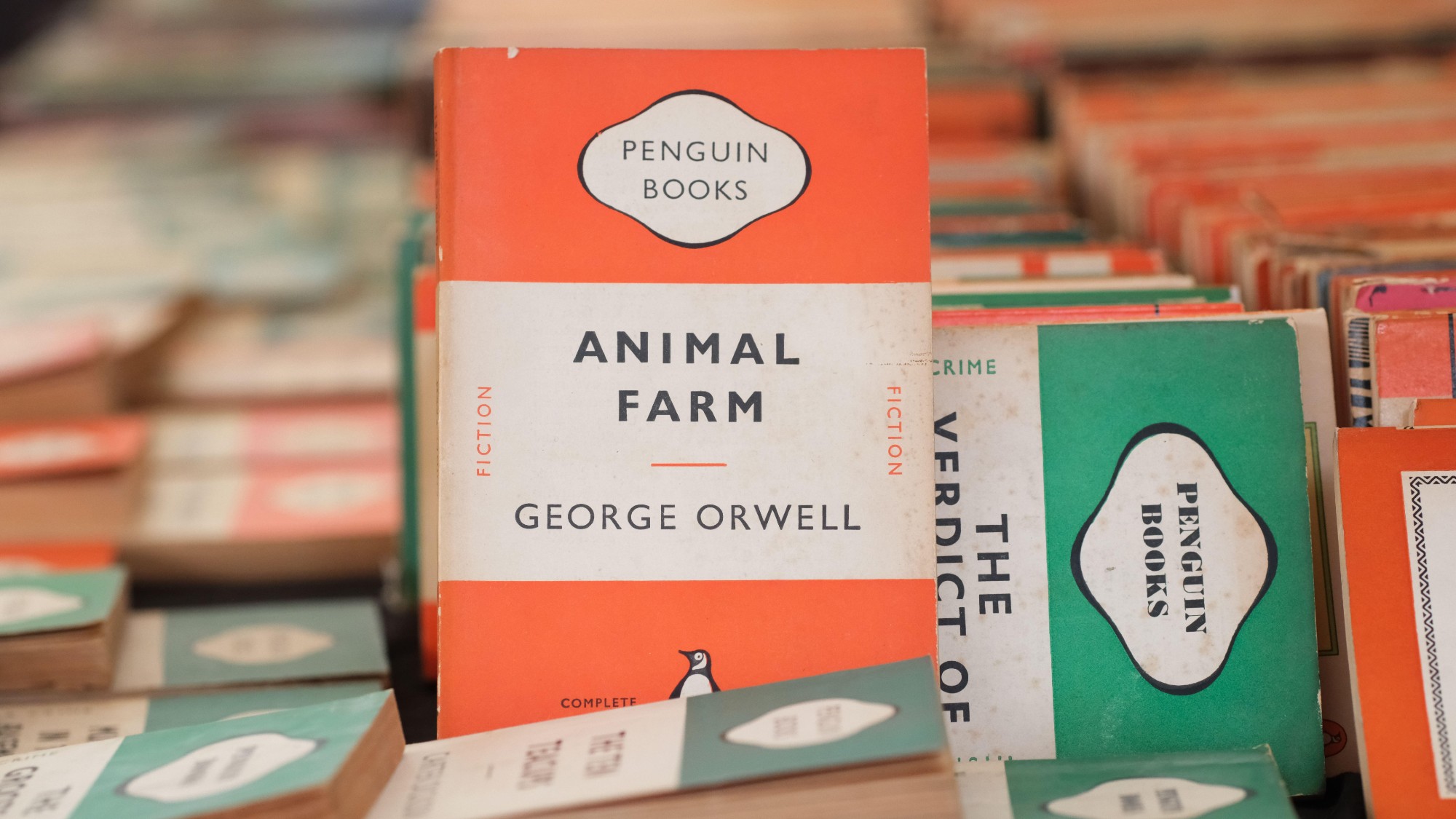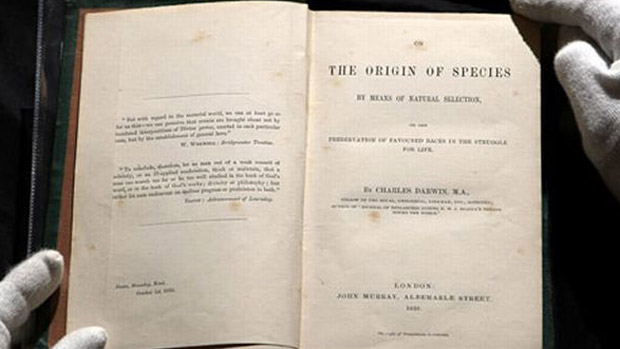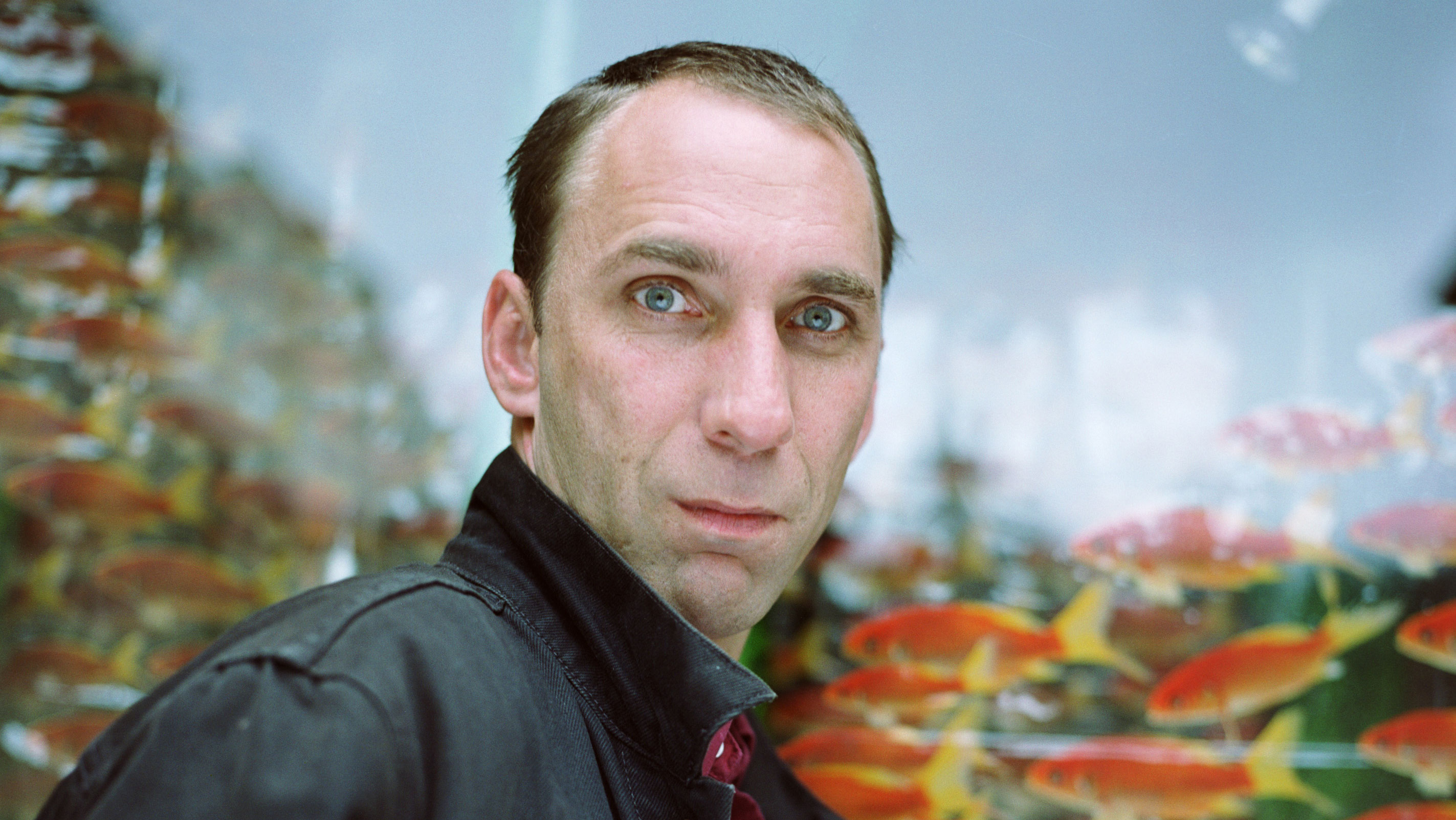'Animal Farm' at 80: Orwell's parable remains 'horribly' relevant
George Orwell's warnings about authoritarianism and manipulation have been weaponised across the political spectrum

A free daily email with the biggest news stories of the day – and the best features from TheWeek.com
You are now subscribed
Your newsletter sign-up was successful
George Orwell's "Animal Farm" may be 80 years old this weekend but it still "resonates today" – and "not just as a terrible indictment of left-wing idealism and Communist tyranny", said writer A.N. Wilson in The Times.
His "incomparable masterpiece" illustrates "exactly what Lenin, and then Stalin, did to the population of the USSR" at the beginning of the last century but the animal characters' "pathetic weakness to believe political mantras" remains "horribly" relevant in 2025.
'Forever current'
The book is a "parable about our willingness to compromise with evil when it suits us", said Wilson. "We hold up our hands in horror" at Jamal Khashoggi's murder in a Saudi consulate, but "we'll extend a warm welcome" to the kingdom's ruler, Mohammed bin Salman. "And we all know what is going on in China" but see British trade as "more important" than "the mass imprisonment of Uighurs".
The Week
Escape your echo chamber. Get the facts behind the news, plus analysis from multiple perspectives.

Sign up for The Week's Free Newsletters
From our morning news briefing to a weekly Good News Newsletter, get the best of The Week delivered directly to your inbox.
From our morning news briefing to a weekly Good News Newsletter, get the best of The Week delivered directly to your inbox.
Orwell may be "long-dead" but "he remains forever current", said Matthew Purdy in The New York Times. It's his "posthumous fate" that "Animal Farm", and his other great work, "1984", have been "stolen" by people of every political persuasion.
Warnings that language can be "a weapon of manipulation, obfuscation and oppression" run through his work. For progressives, Donald Trump and other right-wing leaders embody that sinister authoritarian overreach, while the right sees Orwellian traits in "the left's approach to transgender issues and Covid mandates, and the 'cancelling' of people who do not comply". It's "unlikely" that Orwell, a "writer of precision", would have "approved of being slotted into every hole equally and simultaneously".
'Indelible mark'
Orwell’s writings have "left an indelible mark on American thought and culture", said US Mark Satta, an assistant professor of philosophy, on The Conversation. Sales of "Animal Farm" and "1984" soared after whistleblower Edward Snowden leaked confidential US national security documents in 2013, and "1984 rose to the top" of Amazon’s bestseller chart after Trump's first inauguration in 2017.
Orwell's description of "democratic socialism" and his "recognition that there are various forms of socialism "remain important today" because "political dialogue", particularly in the US, often "overlooks much of the nuance" he "brings to the subject" – not least, the difference between socialism and communism.
A free daily email with the biggest news stories of the day – and the best features from TheWeek.com
Although "Animal Farm" is an extended metaphor and "not really about animals", said Charlotte Sleigh on The Conversation, "what if we were to take the animals in this famous tale more seriously?" It's a novella where a pig dreams – something that "would have the 20th-century animal psychologists turning in their graves". But "any dog owner" today will tell you that their "four-legged friend" has dreams, and, in 2013, anthropologist Eduardo Kohn, argued that "all animals think and imagine their future".
"Animal Farm" endures because "Orwell was also an artist", said Jim Beckerman on My Central Jersey, and in the "struggles of his animal characters, there is real pain". The part where Boxer the cart-horse is "sent to the glue factory" has "made more than one kid tear up". But "by osmosis", young readers can also absorb Orwell's warnings about "how power corrupts, truth can be distorted, and high-sounding phrases can be used to justify horrific crimes".
Chas Newkey-Burden has been part of The Week Digital team for more than a decade and a journalist for 25 years, starting out on the irreverent football weekly 90 Minutes, before moving to lifestyle magazines Loaded and Attitude. He was a columnist for The Big Issue and landed a world exclusive with David Beckham that became the weekly magazine’s bestselling issue. He now writes regularly for The Guardian, The Telegraph, The Independent, Metro, FourFourTwo and the i new site. He is also the author of a number of non-fiction books.
-
 How the FCC’s ‘equal time’ rule works
How the FCC’s ‘equal time’ rule worksIn the Spotlight The law is at the heart of the Colbert-CBS conflict
-
 What is the endgame in the DHS shutdown?
What is the endgame in the DHS shutdown?Today’s Big Question Democrats want to rein in ICE’s immigration crackdown
-
 ‘Poor time management isn’t just an inconvenience’
‘Poor time management isn’t just an inconvenience’Instant Opinion Opinion, comment and editorials of the day
-
 Holy mate-trimony: the rise of 'friendship marriages'
Holy mate-trimony: the rise of 'friendship marriages'Under the Radar Young people in China, Japan and the US are saying 'I do' to platonic unions, to alleviate social pressure or loneliness and access financial benefits
-
 Boysober: the rebranding of female celibacy
Boysober: the rebranding of female celibacyUnder the Radar Voluntarily abstaining from sex is gaining traction as a feminist choice amid erosion of reproductive rights and dating app fatigue
-
 Death Cafes: where people talk mortality over tea and cake
Death Cafes: where people talk mortality over tea and cakeIn the Spotlight The meet-ups are intended to offer a judgement-free and respectful space to discuss the end of life
-
 The unfortunate, ongoing disappearance of 'third places'
The unfortunate, ongoing disappearance of 'third places'The explainer People are losing the sublime art of hanging out
-
 Four essential dystopian novels
Four essential dystopian novelsIn Depth In a politically volatile world, these post-apocalyptic works of fiction are finding new relevance. Read 'em and weep…
-
 British readers choose Bible and Darwin as most influential books
British readers choose Bible and Darwin as most influential booksSpeed Read Poll by Folio Society sees Bible win on 37% – but Origin Of Species comes close with 35%
-
 Shark attack: Will Self goes for 'mediocre' George Orwell
Shark attack: Will Self goes for 'mediocre' George OrwellIn Depth Self, a notorious purveyor of obtuse English, attacks the master of clarity for – yes – his clarity